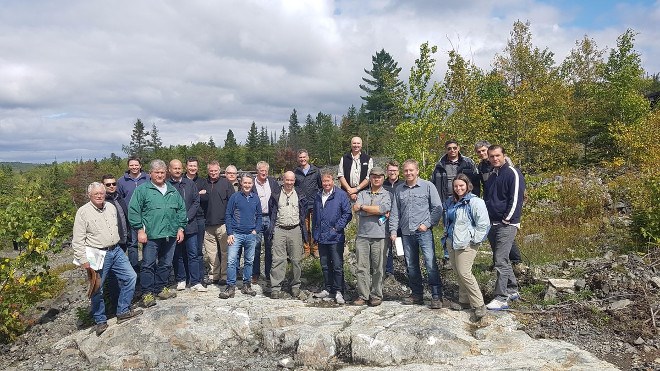Only months after announcing it was buying into the Democratic Republic of Congo (DRC), First Cobalt is pulling out to concentrate on its exploration work in northeastern Ontario.
The Toronto-headquartered cobalt hunter announced Sept. 18 that it will not complete its “strategic alliance” on seven cobalt exploration properties in the DRC.
Instead, the company said it will focus on its flagship property in the historic Cobalt mining camp.
Its Greater Cobalt Project includes an option for the former producing Keeley-Frontier mine, a high-grade mine that produced over 3.3 million pounds of cobalt and 19.1 million ounces of silver from 301,000 tonnes of ore, as well as a joint venture on a fully permitted cobalt refinery in the town of Cobalt.
The company said when previously announced mergers with Cobalt One and CobalTech Mining are finalized later this year, they will have 50 former mines, spread out over 10,000 hectares, at their disposal.
“The high number of advanced exploration targets ready for immediate work in the Cobalt Camp greatly offsets the potential in the DRC properties at this time,” said a news release.
“Investors are very supportive of our vision for the Canadian Cobalt Camp and we are aligned with their desire to focus on the bulk mining potential of this district, located in the best mining jurisdiction in the world,” added First Cobalt president-CEO Trent Mell in a statement.
“The Canadian Cobalt Camp is emerging as one of the most prospective targets for cobalt exploration. The DRC remains very appealing geologically but the investment climate has deteriorated since the strategic alliance was announced and we have significantly expanded our footprint in Canada.”
The DRC holds the world’s largest source of cobalt, a key ingredient used in rechargeable batteries that powers everything from cell phones to electric cars.
Back in May, First Cobalt said it had formed a strategic alliance to earn a 70 per cent interest over seven prospective copper-cobalt exploration properties covering 19,000 hectares in the southern part of the DRC.
At the time, the transaction was considered a “low-risk entry point into the world’s leading cobalt jurisdiction.”
But according to a Bloomberg report, the DRC government is introducing a new mining code which would increase taxes and royalties for companies.
Miners are also facing serious financial difficulties because the state has failed to reimburse more than $1.2 billion of taxes and duties.
A recent United Nations report said rebel militia and military forces in the country’s northeastern corner are benefitting from the illicit trade in gold as part of widespread problems gripping the African country.




.jpeg;w=120;h=80;mode=crop)